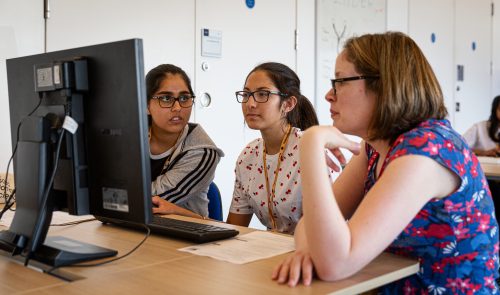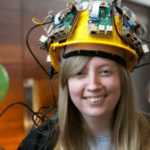Schlagwort: realrolemodels
-

I belong in computer science
Reading Time: 6 minutesAt the Raspberry Pi Foundation, we believe everyone belongs in computer science, and that it is a much more varied field than is commonly assumed. One of the ways we want to promote inclusivity and highlight the variety of skills and interests needed in computer science is through our ‘I belong’ campaign.…
-

“17% women in tech is not enough”
Reading Time: 6 minutesTechnology should be for everyone, but it has to be built by everyone to be for everyone. At Raspberry Pi, we work to empower everyone to become a tech creator and shape our collective digital future, and we hope that our work will help to increase the tech sector’s diversity. Today, part…

